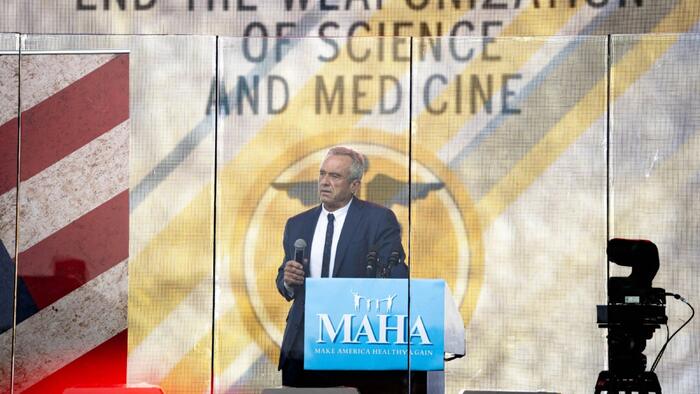Robert F. Kennedy Jr. has recently reoriented his focus toward promoting a health initiative called Make America Healthy Again (MAHA) after suspending his independent presidential campaign on August 23, 2024. In this new chapter, Kennedy has shown a commitment to addressing what he refers to as a chronic disease epidemic in the United States. He has endorsed former President Donald Trump, who has indicated his intention to appoint Kennedy to a health-related position in a potential second term. Kennedy shared that his decision to end his candidacy was difficult but necessary to progress toward his longstanding goal of resolving America’s public health crisis, which he has been praying for over the last 19 years.
Kennedy’s advocacy is rooted in a belief that corporate interests have taken over government health agencies, such as the FDA, USDA, and CDC. He argues that these agencies are no longer functioning to protect American health; instead, they are prioritizing the economic interests of the pharmaceutical and food industries. During the MAHA rally on September 30, 2024, Kennedy emphasized that true reform cannot happen without ending this corporate capture, which he believes is a fundamental barrier to improving health outcomes in the nation.
Kennedy argues that the state of the American healthcare system should be evaluated by outcomes such as rates of chronic illness, obesity in children, and life expectancy, which he claims are alarmingly poor compared to other nations. He points out that, unlike countries with smaller economies, like Italy, the U.S. lags in life expectancy while spending significantly more on healthcare. He criticized the Affordable Care Act for exacerbating the crisis, claiming it has led to soaring insurance premiums while life expectancy declines.
Since the COVID-19 pandemic, Kennedy has been a vocal critic of how public health officials managed the crisis, citing that the U.S. experienced one of the worst outcomes globally. He attributes the high levels of chronic health problems in the U.S. to systemic failures rather than a lack of pharmaceuticals. With approximately two-thirds of U.S. adults experiencing chronic health conditions and alarming statistics pertaining to childhood illnesses, Kennedy views the current situation as a moral failure and likens it to a form of abuse against American children.
He highlighted the dramatic increase in chronic diseases among younger populations, noting that conditions that once primarily affected the elderly are now rampant among children and teenagers. He attributes this surge to a dramatic shift in diet, indicating that ultra-processed foods now constitute a significant portion of American children’s nutrition—often leading to severe health issues like obesity, fatty liver disease, and a rise in mental health diagnoses. Kennedy claims these foods are laden with chemicals banned in other countries, which he believes contributes significantly to the health crisis.
With Trump’s backing, Kennedy is set to take on a leading role in investigating and reforming the factors leading to rising chronic diseases in American children, as Trump mentioned creating a panel for expert analysis in this area. Kennedy’s ambitions include a pledge that if given the opportunity to lead health-related reforms within the government, significant improvements in chronic health issues can be achieved within two years. As part of MAHA, he plans to engage with the public through speeches, town halls, and discussions, focusing on the need for profound changes in American food production and healthcare policy.

